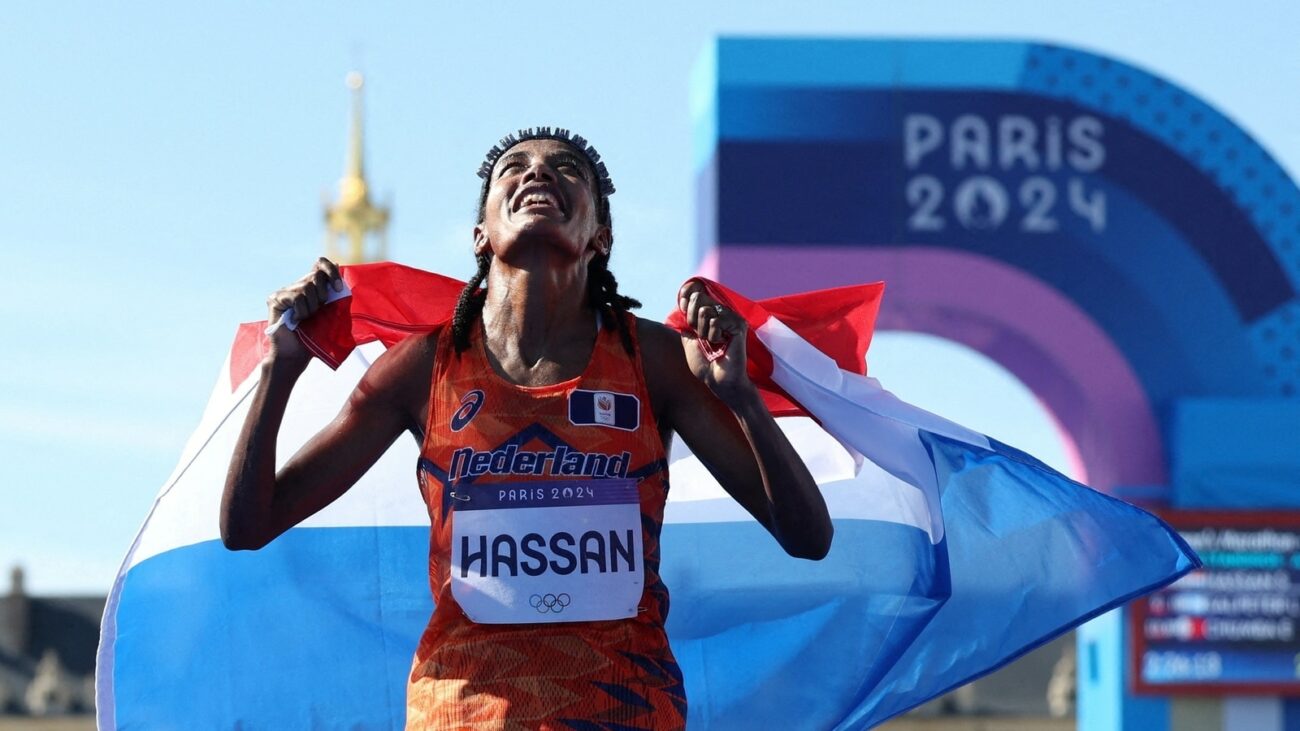Sifan Hassan, the Ethiopian-born Dutch runner, etched her name into Olympic history by winning the women’s marathon in Paris, securing her third distance medal of the Games. Hassan’s victory came in an Olympic record time of 2 hours, 22 minutes, 55 seconds, edging out Tigst Assefa of Ethiopia by a mere three seconds. Kenya’s Hellen Obiri claimed the bronze medal.
Hassan’s triumph was not without controversy, as the Ethiopian team lodged a protest alleging obstruction. However, the Jury of Appeal dismissed the protest, ruling that Assefa had impeded Hassan’s progress. The incident occurred with 150 meters remaining, as Hassan and Assefa traded elbows along the railing.
Hassan’s victory was a testament to her remarkable endurance and tactical prowess. She employed her signature strategy of lurking behind the leaders before unleashing a devastating late-race surge. This tactic proved effective once again, as she overtook Assefa in the final stretch.
Hassan’s Olympic journey has been nothing short of extraordinary. She has now amassed six Olympic medals, including gold in the 5,000 and 10,000 meters in Tokyo. Her performance in Paris has cemented her status as one of the greatest distance runners of all time.
The women’s marathon in Paris marked a significant departure from tradition, as it was held on the final day instead of the men’s race. The route held historical significance, tracing the footsteps of the Women’s March on Versailles in 1789.
Despite the challenging hilly terrain, Hassan remained unfazed. She navigated the steep inclines and treacherous descents with ease, showcasing her exceptional athleticism. The race unfolded as a thrilling battle between Hassan, Assefa, Obiri, and Amane Beriso Shankule.
In the end, Hassan’s determination and unwavering spirit prevailed. She crossed the finish line with her hands raised in triumph, draped in the Dutch flag. Her victory was a testament to her resilience and the indomitable spirit of the human body.






